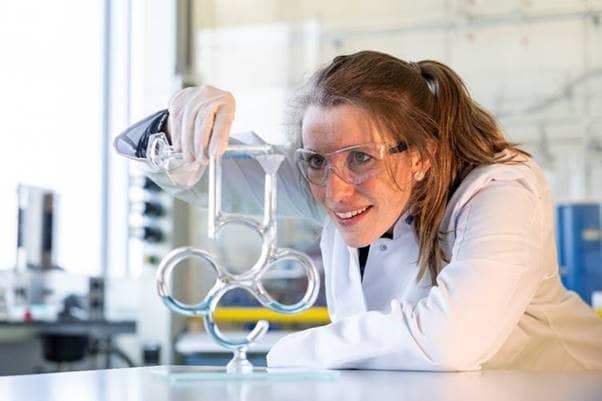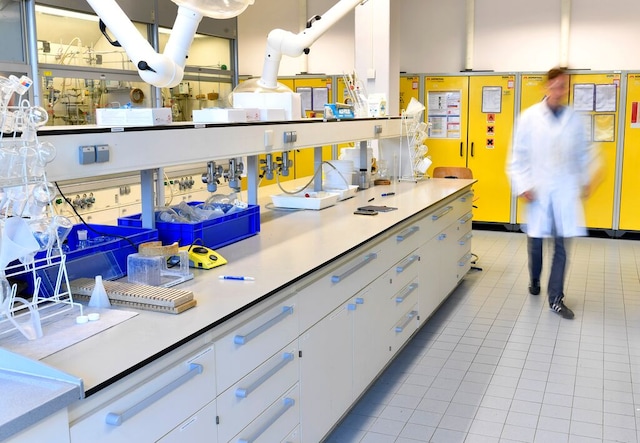Renewable energy and sustainable materials, such as coatings and catalysts, are one step closer now that the collaborating parties in a Dutch scientific consortium – including AkzoNobel – have agreed to work together for another five years on making the chemical industry more sustainable.
As part of the Advanced Research Center Chemical Building Blocks Consortium (ARC CBBC), AkzoNobel, BASF and Shell, together with the universities of Eindhoven, Groningen and Utrecht, are investing in developing a large international ecosystem in the field of research and development of green chemistry.
The consortium has been supported since its launch in 2016 by NWO (the Dutch Research Council) and the Ministry of Economic Affairs and Climate in the Netherlands.

The consortium has been supported since its launch in 2016 by NWO (the Dutch Research Council) and the Ministry of Economic Affairs and Climate in the Netherlands.
“We’re proud of the results achieved so far and pleased that the partners have committed themselves again for another five years,” says Scientific Director, Bert Weckhuysen. “Only together will we make a difference, and this is already evident.
“We’re full of energy and focusing on the next five years, in which we want to invest further to become the best-in-class science infrastructure in Europe, with an important pioneering role in the fields of greenification and circularity. And because we’re an open partnership, we’re looking for even more cooperation with other parties.”
The ARC CBBC directly connects top scientists working in chemicals in the Netherlands with researchers of the affiliated companies, and vice-versa. Major figures involved with consortium include Nobel Prize winner Ben Feringa, Spinoza Prize winner Bert Weckhuysen and top scientists such as Hans Kuipers.
Breakthroughs
Over the last five years, research has led to breakthroughs in the energy, material and feedstock transition. These include smart processes for CO2 conversion and the use of biomass to make existing and new materials, such as coatings.
Joint investments have also been made in a unique research infrastructure in the Netherlands which has also distinguished itself internationally. More than 59 top researchers are now working within the program to make chemistry greener, with room for 21 more research positions. This has already resulted in several patent applications and numerous publications in leading scientific journals.
This year, the consortium was evaluated by an independent committee set up by the Dutch Research Council. It once again underlined the potential of the ARC CBBC and its great importance in a subsequent report. According to the committee: “The unique lab infrastructure, the profound collaboration between scientists and industry, the top scientists, the talent program for young researchers and the design of the multilateral research programs are key elements for innovation in the field of green chemistry.”

About ARC CBBC
In the Advanced Research Center Chemical Building Blocks Consortium (ARC CBBC), founded in 2016, the companies AkzoNobel, BASF and Shell, and the universities of Eindhoven, Groningen and Utrecht, are working with the support of the Dutch government and scientists from other academic institutions on far-reaching research to find solutions to counteract greenhouse gas emissions and create a sustainable society.




